Ensuring Compliance: Customs Inspections Before or After Clearance?
ISF Solution | (800-220-6131)
clearance@isfsolution.com | www.isfsolution.com
In summary, requesting a customs inspection before or after clearance is possible, but it is not a common practice. Customs inspections are typically conducted during or after the clearance process to verify compliance with regulations. There are proactive steps that importers can take to ensure compliance before the goods arrive at the customs border, such as working with a customs broker, conducting due diligence on suppliers, accurately classifying goods, and providing complete and accurate information in the ISF filing. Customs brokers play a crucial role in assisting importers with customs compliance by providing expertise in customs regulations, properly documenting shipments, filing necessary paperwork, and coordinating with customs authorities. By taking these proactive measures and working with a customs broker, importers can minimize the risk of audits or inspections due to non-compliance.
#CustomsBrokerage #InternationalTradeInsights #CustomsCompliance #ImportSecurityFiling #SmoothClearanceProcess #CustomsInspectionGuidelines #CustomsBrokerServices #ProactiveComplianceMeasures #StayInformed
Video Disclaimer Here: For educational purposes - No affiliation with US government sectors.
"00:40 Customs Bond and ISF: Importers must have a customs bond, which guarantees payment of duties and fees. Importer Security Filing (ISF) is required for ocean shipments entering the US to provide essential data for security and trade facilitation.
01:04 Requesting Inspections: While it is possible to request a customs inspection before or after clearance, it is not common practice. Customs authorities prioritize inspections based on risk assessment, usually conducting them during or after the clearance process.
01:13 Customs Inspection: Customs inspections are crucial for verifying compliance with rules and regulations. They are conducted by customs officers during or after the clearance process to identify any irregularities.
02:22 Ensuring Compliance: Importers can ensure compliance by working with customs brokers, conducting due diligence on suppliers, accurately classifying goods, and providing complete ISF information. Proactive measures help minimize the risk of audits or inspections due to non-compliance."
-
 4:48
4:48
ISF Checklist
23 days agoMastering ISF Compliance: Tips for Smooth Customs Clearance
2 -
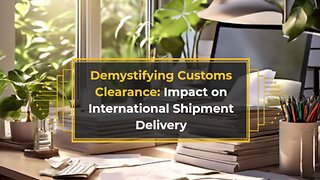 6:16
6:16
ISF Solution
1 month agoMastering Customs Clearance: How It Impacts Your International Shipments
1 -
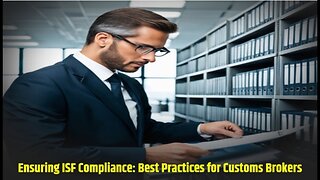 4:03
4:03
ISF Checklist
2 months agoUnderstanding ISF Compliance: Best Practices for Smooth Customs Clearance
-
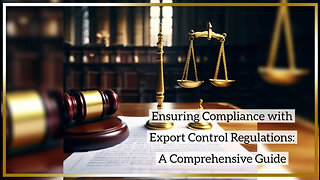 4:49
4:49
ISF Template
1 month agoNavigating Export Control Regulations: Ensuring Compliance for Smooth Clearance
1 -
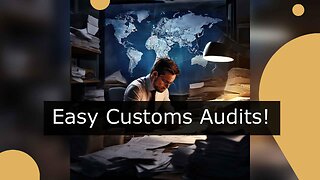 3:35
3:35
ISF Checklist
1 month agoMaximizing Your Customs Compliance: The Power of Customs Clearance Agents
2 -
 3:18
3:18
ISF Template
28 days agoThe Crucial Role of an Importer of Record: Navigating Customs and Compliance
2 -
 3:55
3:55
ISF Template
1 month agoDemystifying Customs Clearance: The Essential Role of Customs Clearance Agents
-
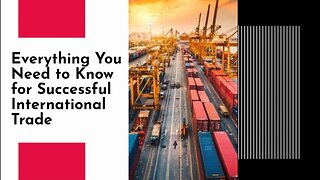 3:06
3:06
License To Import
2 months agoStay Compliant with Importer Security Filing and Unlock Smooth Customs Clearance
6 -
 3:03
3:03
e Customs Clearing
21 days agoNavigating Customs: The Ins and Outs of Certificate of Conformity
3 -
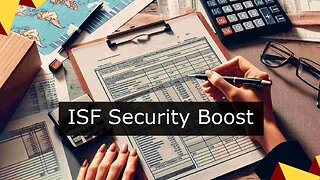 4:27
4:27
ISF Checklist
29 days agoISF: Securing the Supply Chain and Streamlining Customs Clearances
5